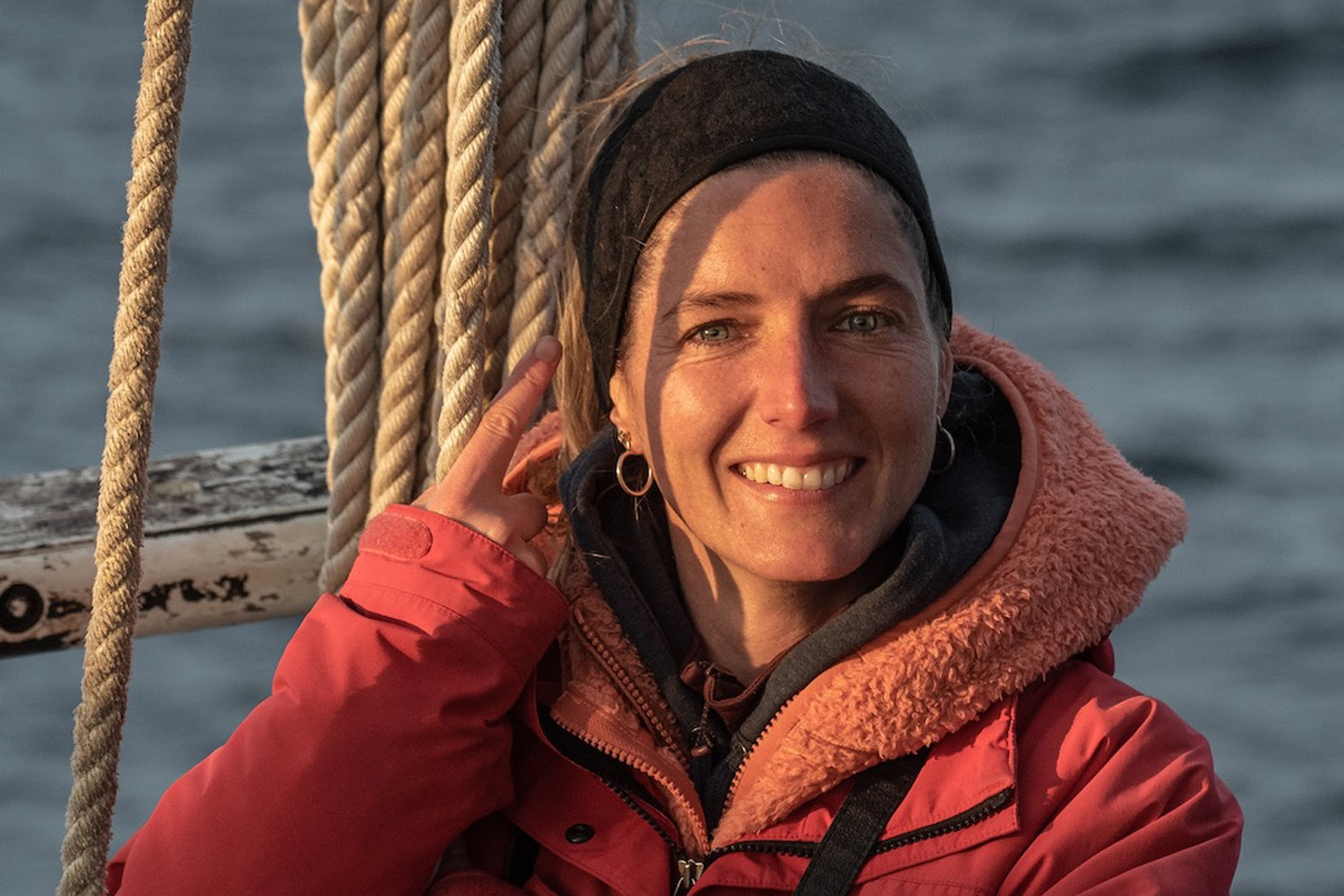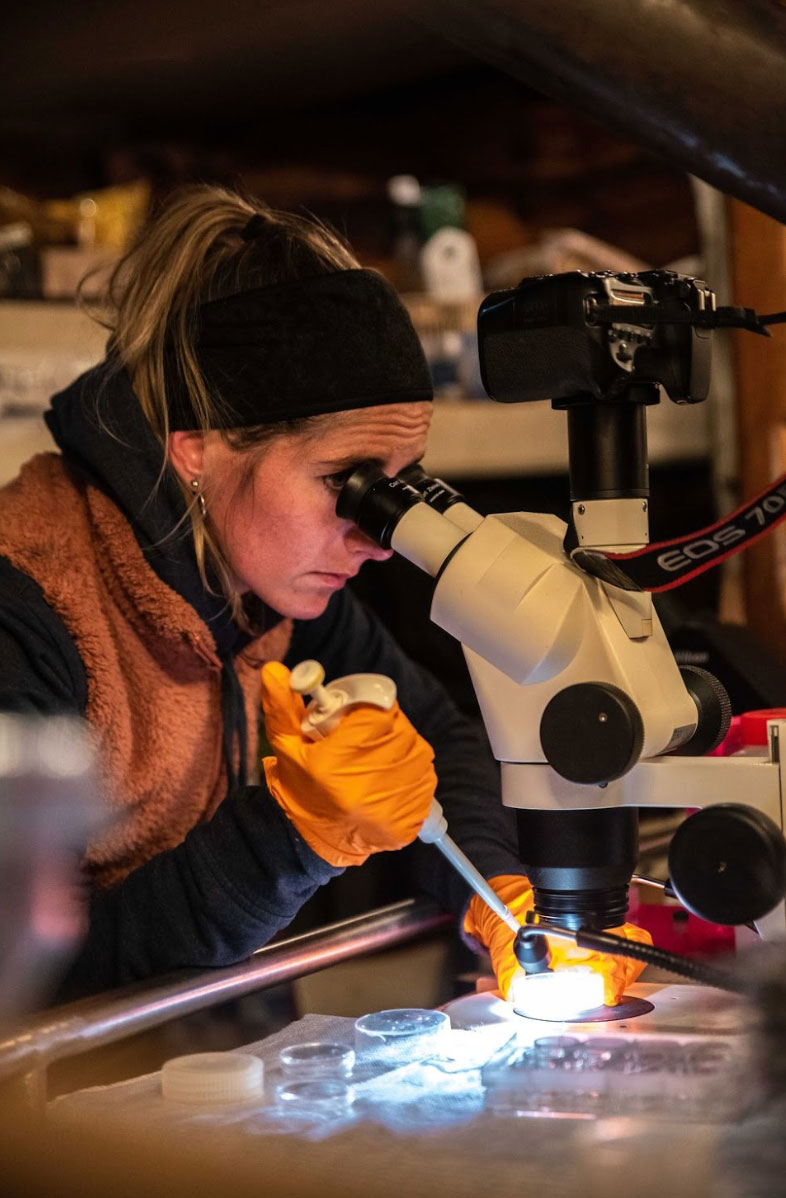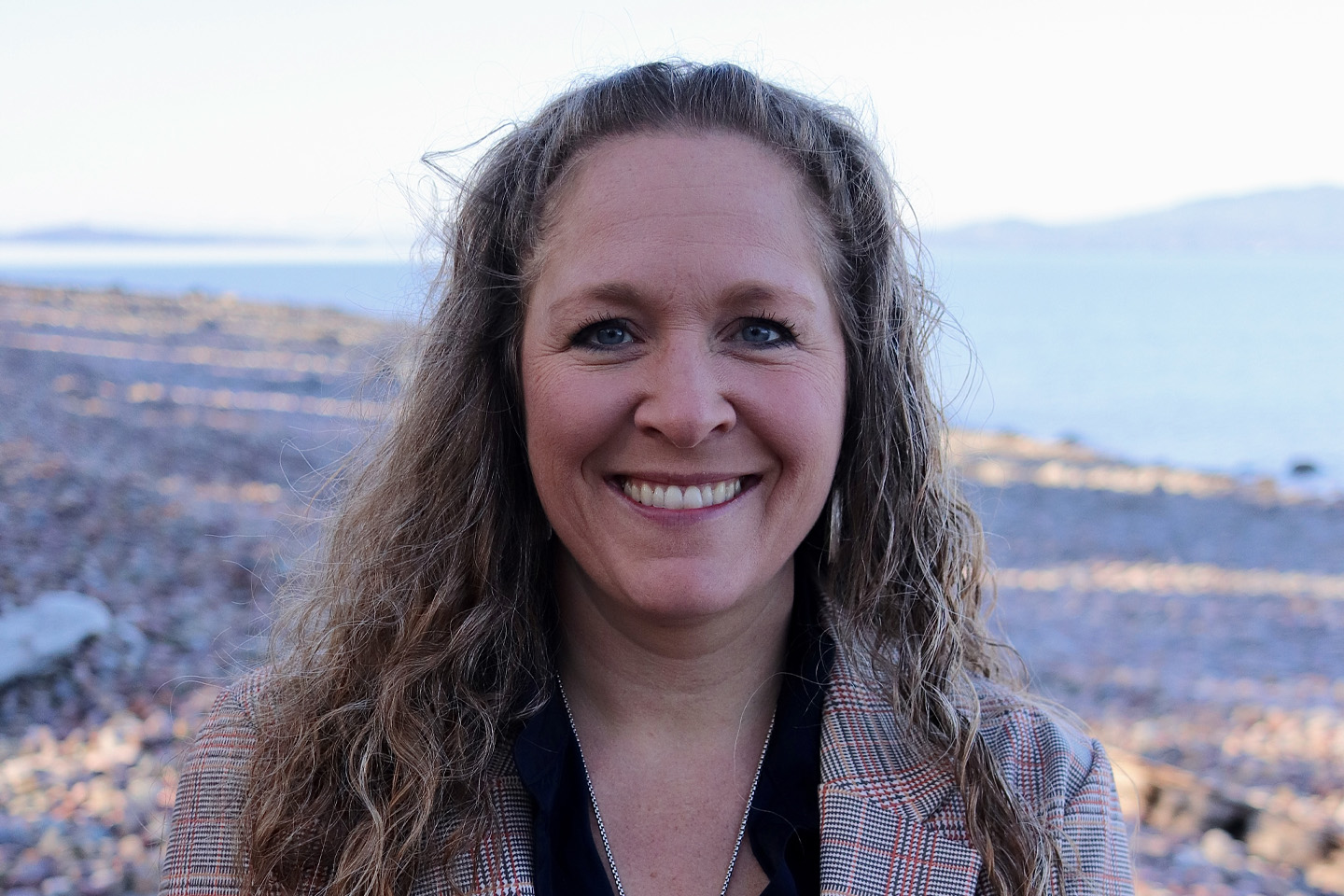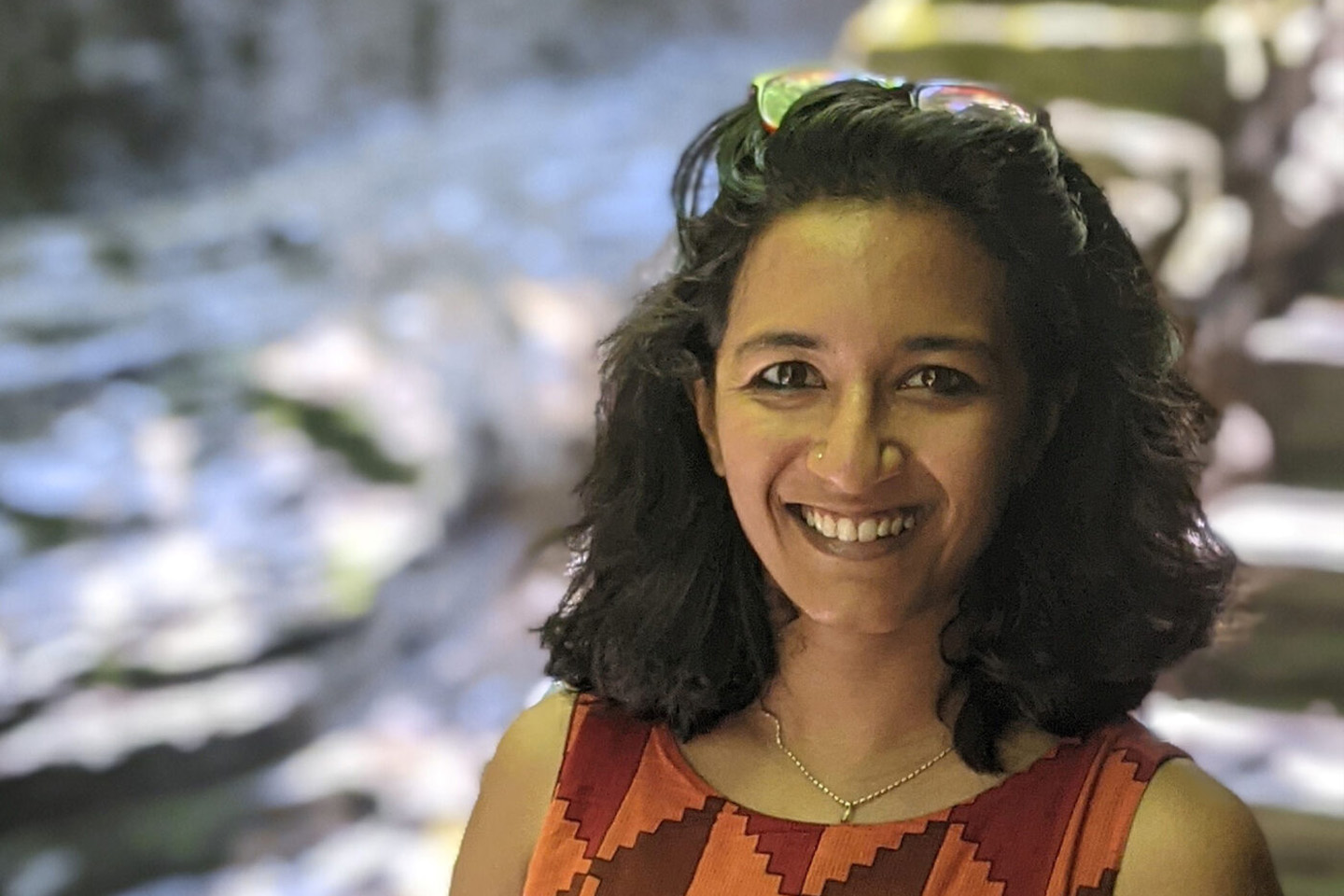Natalia Llopis Monferrer
she/her Marie Sklodowska-Curie Actions Postdoctoral Scholar, Monterey Bay Aquarium Research Institute/Station Biologique de Roscoff Moss Landing, Calif. and Roscoff, France

Field research is vital to the work of Natalia Llopis Monferrer because the delicate organisms she studies, Rhizaria, can’t be grown in labs. Researching them helps us better understand silica-cycling in marine ecosystems.
Rhizaria are single-cell organisms that can build siliceous skeletons and are found throughout the world’s oceans, at all depths. Llopis Monferrer’s Rhizaria research relies on extensive field studies using a variety of observation tools. She has collected samples from small boats where she has used hand-held nets, large research ships with remotely operated vehicles and open-ocean snorkeling. Her field sites include Antarctica, the Mediterranean, the Atlantic Ocean, and the coasts of California and Hawaii.
Llopis Monferrer discovered the critical role Rhizaria play in the ocean’s silicon cycle and carbon cycle. They help export carbon to the deep ocean, thereby removing carbon from surface waters and the atmosphere. She has also developed datasets that provide a molecular entry point into understanding the physiology of these important organisms. Learn more about Llopis Monferrer’s work with Rhizaria here.

You Might Also Like


